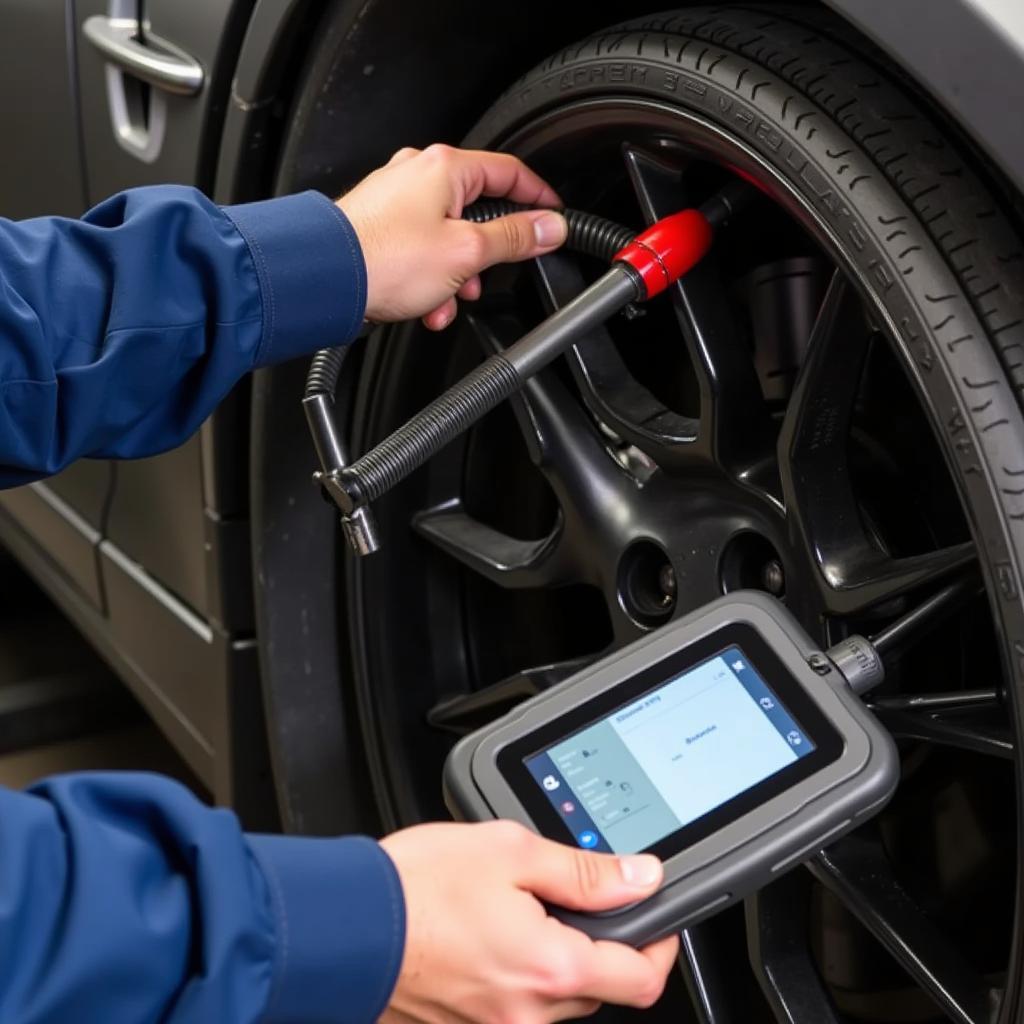Car Problems Stiff Steering can be a real pain, making maneuvering difficult and even dangerous. This article dives into the common causes of stiff steering, from low power steering fluid to more serious mechanical issues, and provides practical solutions to get your steering wheel moving smoothly again.
Why is My Steering Wheel So Hard to Turn?
Several factors can contribute to a stiff steering wheel. Understanding these potential culprits is the first step towards a solution. Is it harder to turn at low speeds? Does it make a groaning noise? These are clues that can help pinpoint the problem.
Low Power Steering Fluid
One of the most common causes of car problems stiff steering is low power steering fluid. This fluid is essential for the hydraulic system that assists in turning the wheels. Check the fluid level in the reservoir; if it’s low, you’ll need to top it off. However, consistently low fluid suggests a leak, which requires professional attention.
Worn-Out Power Steering Belt
The power steering belt drives the pump that provides the hydraulic pressure for your power steering system. A worn, loose, or broken belt can lead to reduced or no power steering assistance, resulting in a stiff steering wheel. Inspect the belt for cracks, fraying, or slippage. If it’s damaged, it needs to be replaced.
Power Steering Pump Issues
The power steering pump is the heart of the system. If the pump is failing, it won’t be able to generate the necessary pressure, making your steering feel heavy. A whining noise when turning the steering wheel is a telltale sign of a failing pump.
Steering Rack Problems
The steering rack translates the rotational motion of the steering wheel into the linear motion needed to turn the wheels. A worn or damaged steering rack can significantly affect steering feel, making it stiff and difficult to control. A leaking steering rack can also contribute to low power steering fluid.
Tie Rod Ends and Ball Joints
Tie rod ends and ball joints connect various components of the steering and suspension system. Worn or damaged tie rod ends or ball joints can restrict movement, making the steering feel stiff and unresponsive, especially when turning.
Tire Pressure and Alignment
Believe it or not, even incorrect tire pressure or misalignment can contribute to stiff steering. Low tire pressure increases rolling resistance, making it harder to turn the wheels. Misalignment can also put extra stress on the steering components, leading to a heavier feel.
Troubleshooting Car Problems Stiff Steering: A Step-by-Step Guide
- Check the Power Steering Fluid: Locate the power steering fluid reservoir and check the fluid level.
- Inspect the Power Steering Belt: Look for cracks, fraying, or looseness.
- Listen for Unusual Noises: Whining noises can indicate a failing power steering pump.
- Check Tire Pressure: Ensure all tires are inflated to the correct pressure.
- Consider Alignment: If the steering feels off-center or pulls to one side, have the alignment checked.
What to Do if Your Steering Wheel is Still Stiff
If you’ve checked the basics and the steering is still stiff, it’s time to consult a professional. A qualified mechanic can diagnose the issue accurately and recommend the necessary repairs.
“Don’t ignore a stiff steering wheel. It’s not just an inconvenience; it can be a safety hazard,” advises John Miller, a certified automotive technician with over 20 years of experience.
 Mechanic Diagnosing Stiff Steering
Mechanic Diagnosing Stiff Steering
Conclusion: Addressing Car Problems Stiff Steering
Car problems stiff steering can stem from various causes, ranging from simple fluid top-ups to more complex mechanical issues. By understanding the potential problems and following the troubleshooting steps outlined above, you can often identify the root cause and take appropriate action. If the problem persists, don’t hesitate to seek professional assistance. Contact AutoTipPro at +1 (641) 206-8880 or visit our office at 500 N St Mary’s St, San Antonio, TX 78205, United States, for expert advice and repairs. Addressing car problems stiff steering promptly ensures a safe and enjoyable driving experience.
“Regular maintenance can prevent many steering problems. Make sure to have your power steering system checked during routine service,” adds Sarah Johnson, a senior automotive engineer.
FAQ
-
What is power steering fluid? Power steering fluid is a hydraulic fluid that helps to assist the steering system, making it easier to turn the steering wheel.
-
How often should I check my power steering fluid? It’s a good idea to check your power steering fluid level monthly.
-
Can I drive with a stiff steering wheel? While you can technically drive with a stiff steering wheel, it’s not recommended as it can be dangerous and may indicate a serious problem.
-
How much does it cost to fix a stiff steering wheel? The cost to fix a stiff steering wheel varies depending on the cause. It can range from a few dollars for a fluid top-up to several hundred dollars for more complex repairs.
-
How can I prevent car problems stiff steering? Regular maintenance, including checking fluid levels and inspecting belts and hoses, can help prevent stiff steering problems.
-
What should I do if my steering wheel suddenly becomes stiff while driving? If your steering wheel suddenly becomes stiff while driving, pull over safely to the side of the road and assess the situation. If you’re unsure of the cause, call a tow truck.
-
Is it safe to add power steering fluid myself? Yes, it’s generally safe to add power steering fluid yourself, as long as you use the correct type of fluid and follow the instructions in your owner’s manual.




Leave a Reply